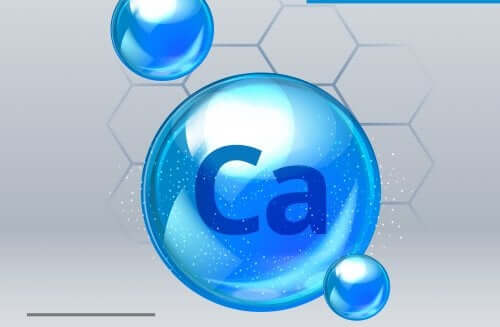Calcium Carbonate: Uses, Precautions and Side-Effects

Calcium carbonate is a chemical compound. Its chemical formula is CaCO3. It’s an abundant inorganic salt and you can find it in rock formations. Furthermore, it’s a major component in the skeletons of many organisms.
As a rule, you get enough calcium from your daily diet. However, at certain ages, both men and women might need calcium supplements to prevent their bones from weakening.
What’s calcium carbonate used for?

We also use it when patients have actually been diagnosed with these deficiencies. Also, a doctor might prescribe it as a phosphate binder. This is for patients with high levels of phosphate in their blood. Finally, we use it as an antacid. In fact, it relieves heartburn and indigestion, as well as an upset stomach.
How to take it
You can get calcium carbonate in the form of a chewy tablet. It’s advisable to drink a glass of water after taking one of these.
You mainly absorb calcium in the upper part of your small intestine. You’ll probably absorb about 53 percent of it. You eliminate it in your urine, feces, and sweat.
The recommended dose for adults is 500 – 1500 mg of calcium per day. Children need about 500- 1000 mg per day. However, if you forget to take a dose you shouldn’t take a double dose to make up for it.
Also, read What Are the Risk Factors for Osteoporosis?
Precautions before taking

Before you start treatment, tell your doctor if you’re allergic to calcium carbonate or any other medication. Also, whether you’re taking any other drugs, whether they’re prescription or otherwise. The doctor also needs to know if you have or have had any kidney or stomach diseases. Furthermore, whether you have elevated calcium levels in your blood or urine.
You also need to tell the doctor if you’re pregnant, planning to become pregnant, or breastfeeding. During pregnancy, calcium intake shouldn’t exceed 2500mg, including food and supplements.
Calcium carbonate and other medications
Calcium carbonate can interfere with the absorption of tetracyclines if you take them at the same time. For this reason, you shouldn’t take tetracyclines till at least two hours before or four-six hours later than calcium carbonate.
Furthermore, you shouldn’t take medicines that contain bisphosphonates until at least one hour before taking calcium carbonate. This is because biphosphonates decrease its hypertensive effects.
Calcium decreases the effects of levothyroxine. For this reason, you should take levothyroxine at least four hours before or fours later than calcium carbonate.
The effects of some antibiotics such as quinolone might be reduced if you take them at the same time as calcium carbonate. You should therefore take quinolone either two hours before or six hours afterward.
Calcium carbonate also affects your absorption of iron, zinc, and strontium ranelate. Therefore, you must separate your intake of these by at least two hours.
Also, read Broad-Spectrum Antibiotics
Possible side-effects
Side effects aren’t very common. However, you could still experience some. They include:
- Stomach upset and stomach pain
- Vomiting
- Flatulence
- Constipation
- Dry mouth
- Metallic taste in the mouth
- Loss of appetite
- Increased urge to urinate
- Itching and hives
Milk-alkali syndrome can occur if you take in high amounts of calcium carbonate along with absorbable alkaline. In this case, the symptoms are an urgent need to urinate, headache, loss of appetite, nausea or vomiting, tiredness and weakness, and kidney disorders, as well as high levels of calcium in the blood
Conclusion
Calcium’s an essential mineral for your body. You must maintain adequate levels throughout your life to avoid osteoporosis.
To achieve this, you need to take medications and supplements that contain calcium carbonate. Always talk to your doctor if you have any questions.
All cited sources were thoroughly reviewed by our team to ensure their quality, reliability, currency, and validity. The bibliography of this article was considered reliable and of academic or scientific accuracy.
-
Universidad Veracruzana. (2011). Sistema Esquelético: Funciones. Huesos: Estructura Y Clasificación. 2012. https://doi.org/10.1017/CBO9781107415324.004
-
Health, N. I. of. (2016). Datos sobre el calcio. National Insitutes of Health.
-
6.0, F. europea. (2008). Carbonato Cálcico. 01/2008:0014.
-
Martinez de Victoria, E. (2016). El calcio, esencial para la salud. Nutricion Hospitalaria. https://doi.org/10.20960/nh.341
This text is provided for informational purposes only and does not replace consultation with a professional. If in doubt, consult your specialist.








